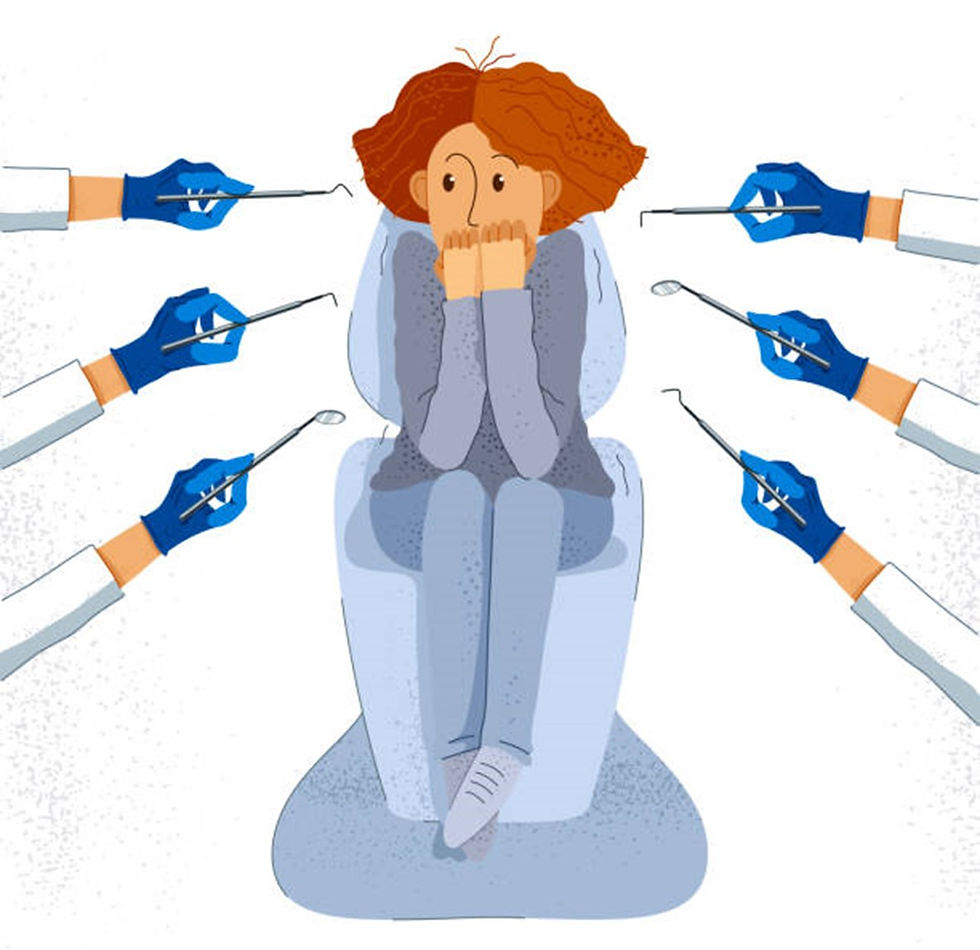10 tips to manage winter blues
- Therapyhere
- Nov 30, 2023
- 4 min read
Updated: Dec 2, 2023

The clocks have gone back and it’s that time of year when temperatures are dropping, the days are getting shorter, the weather is colder and we are getting less hours of sunlight. All this can affect how you feel, making you feel lethargic and perhaps depressed. You may have heard of Seasonal Affective Disorder (SAD); this is when our body’s internal clock and the chemicals in our body, that affect mood, are disrupted by a decrease in sunlight and this can result in depressive symptoms.
Stress can also contribute to the winter blues. Perhaps being indoors more and not being able to get away from things or getting as much daylight can heighten stress. It is also an expensive time of year; increased heating bills, cost of Christmas and all those gifts. All these can affect how you feel and impact your mental health.
Here are my 10 ten tips to help you manage your winter blues:
1. Embrace the winter; see it as an opportunity to slow down, to make changes to your daily routine, to plan nice things for later in the year, to plan holidays, spend time re-organising your finances. It can be a time to take stock. Changing your attitude about winter will help to reduce the winter blues. Challenge your negative thoughts about it and replace them with positive ones instead.
2. Do regular exercise; when it is dark and cold outside, we sometimes just want to stay curled up on the sofa but it is important to remember that exercise can boost your mood and give you more energy. Whether it is going to the gym, stretching, going for a walk around the block, try to integrate it into your daily routine. Just a few minutes of regular exercise will have a positive effect on your wellbeing.
3. Keep good sleep hygiene; it is very tempting to stay in bed when the mornings are dark but having a regular sleep routine will help you to feel more energetic and enable you to cope better with the winter blues. Try to wake-up and go to bed at the same time each night even if it is dark outside, avoid large meals and caffeine and alcohol before bed, turn off your phone at least an hour before bed and relax with a bath, a good book, do some yoga/mediation or stretching. Feeling well-rested will improve your mood.
4. Reach out to a friend or family member; feeling alone and lonely can negatively affect your well-being and will make the winter blues feel even worse so it is important to keep connected to friends, family, colleagues and share how you are feeling and check out what support your employer has. A walk, telephone call, coffee etc with another person will boost your mood.
5. Put some indoor plants around your home; besides that they look good, research has shown that house plants can improve your mental and physical health. Indoor gardening has many benefits and indoor plants have even shown that they can increase productivity by up to 15%. So, if the winter is negatively impacting your mental health, try putting some plants around your house.
6. Eat healthy and well-balanced meals; cold, dark days can make you crave certain sugary foods and carbohydrates but what you eat can make a difference to your energy, mood and well-being so try to eat plenty of fresh fruit, vegetables, fatty fish rich in omega-3 and plenty of whole grains. During winter, we are more likely to be deficient in Vitamin D as sunlight is a natural source for it so it can be helpful to take Vitamin D supplements as this vitamin helps with fatigue and boosting your immune system.
7. Get more light; if the lack of daylight is getting you down, go outside as much as possible, particularly on sunny days and sit close to a window. Light therapy is sometimes used to treat SAD which involves sitting in front of a light box but best to speak to your GP to get further information on these lights.
8. Minimise your screen time; spending more time indoors over the winter months may encourage you to be on your phone more, watch more news and box sets and increase your engagement in social media. Not only can too much screen time negatively affect your mood and increase anxiety, it also is an escape from reality. Bringing yourself back into the present, by finding an alternative activity, will help to reduce the winter blues. So try to limit your daily screen time (if necessary create a daily screen time schedule) and enjoy spending time on other activities.
9. Be kind to yourself; acknowledge that you may suffer from winter blues and so need to change your routine, encourage yourself to keep connected with others, to do exercise, to relax, to try new activities. Perhaps do some meditation or mindfulness. Put post-its up of motivating quotes. Being aware of how you feel and being kind to yourself will help reduce winter blues.
10. Get professional support; if you are struggling to manage your winter blues on your own, reach out for help. It is important to not suffer alone and get overwhelmed by how you are feeling. Asking for help is a sign of strength and courage and with help from a psychotherapist, you can learn to manage your winter blues and positively change your mental health and emotional well-being in as little as a few visits.
For further help and coping strategies, please click here to arrange an initial FREE 15-minute telephone call with me or e-mail directly alison@therapyhere.co.uk.




Comments